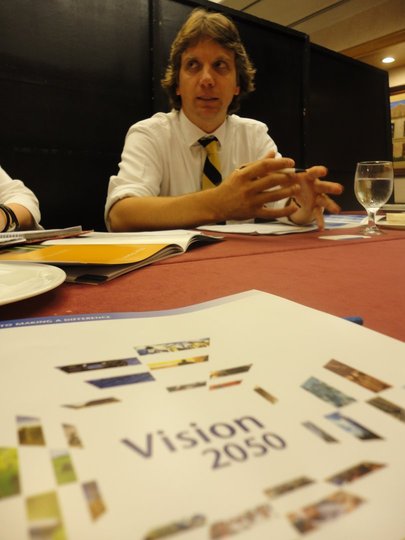Batangas fish kill a wake-up call for sustainable agri practice – experts
The Batangas fish kill incident may point to a need for sustainable practice in agriculture as indicated in a global business agenda launched in the Philippines on Tuesday, two Europeans involved in the report said. “It’s a good warning sign on the way we produce food," said Matthew Lynch, program manager for the Development Focus Area of Geneva-based World Business Council for Sustainable Development (WBCSD), giving an off-the-cuff response to a question related to fish kill during an interview with reporters. His colleague, WBCSD Development Focus Area deputy director Filippo Veglio, associated the fish kill to similar challenges faced by European countries. “There is a certain demand for fish. But how can you ensure that the fish will eventually be replenished?" Veglio added on the sidelines of the event, titled “The Business Climate Imperative: A Sharing Forum" in Pasig City. Also Tuesday, the Bureau of Fisheries and Aquatic Resources (BFAR) warned of what may possibly be a new wave of fish kill incidents due to low oxygen levels in Taal Lake. Earlier this month, an Agriculture official pointed to overstocking in fish cages as a possible reason for the massive fish kill in Batangas province. “The lack of dissolved oxygen could have been avoided if fish cage operators followed our recommendation [not to place too many cages in the area]," said BFAR assistant director Benjamin Tabios Jr. ‘Vision 2050’ In the forum, Veglio and Lynch clarified they have not adequately studied the Batangas fish kill but presented a WBCSD report that maps out the changes needed in the business community “to allow the projected nine billion inhabitants of our planet to be living well at mid-century."

- People’s values
- Human development
- Economy
- Agriculture
- Forests
- Energy and power
- Buildings
- Mobility
- Materials





